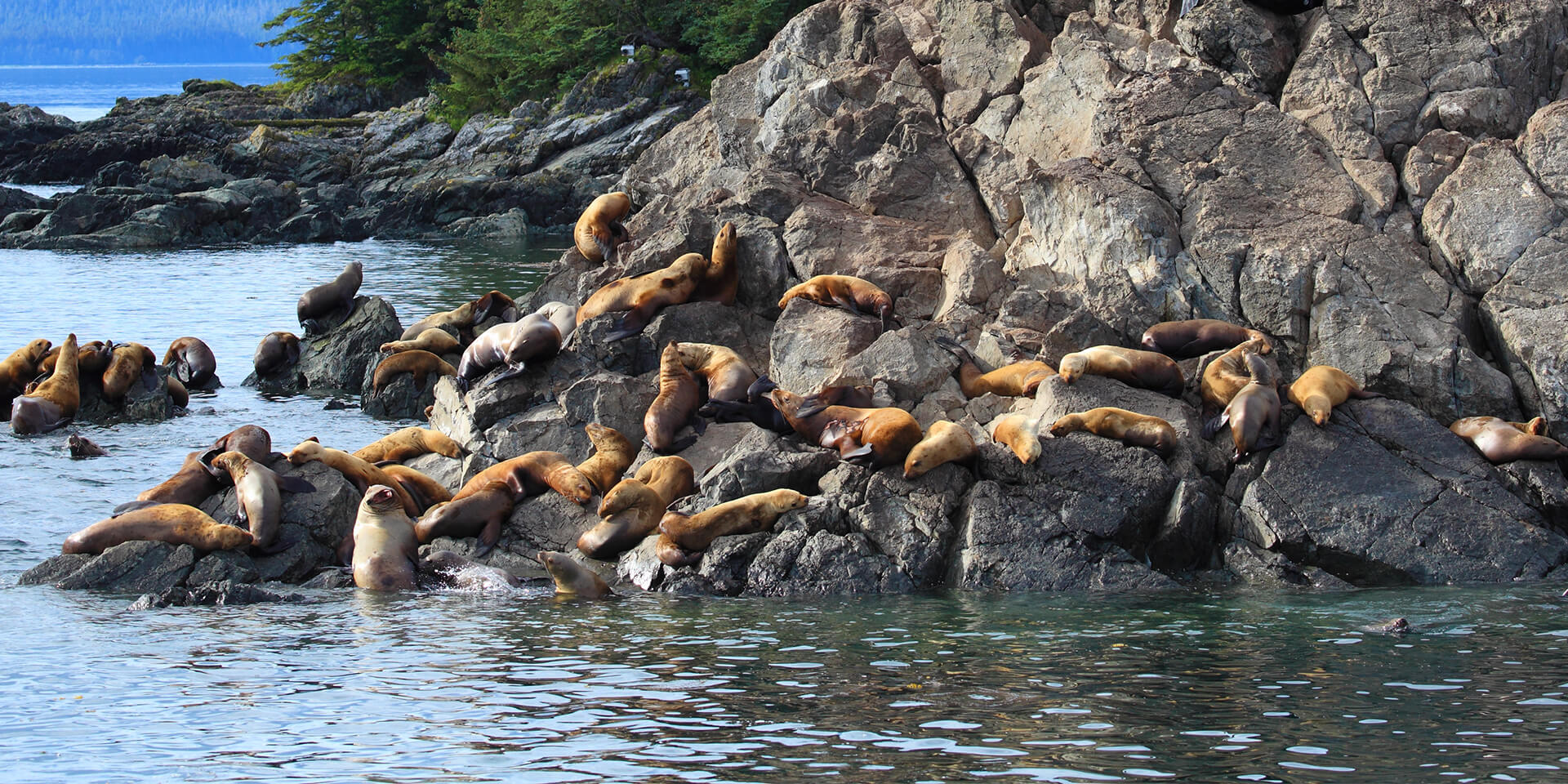Meet the Commission
The Marine Mammal Commission consists of three members (i.e., Commissioners) who are nominated by the President and confirmed by the Senate. The Commissioners must be knowledgeable in marine ecology and resource management as mandated by the Marine Mammal Protection Act (MMPA).
The Commission is assisted in its work by a nine-member Committee of Scientific Advisors (CSA) on Marine Mammals. Committee members are appointed by the Chair of the Commission after consultation with the Chair of the Council on Environmental Quality, the Secretary of the Smithsonian Institution, the Director of the National Science Foundation, and the Chair of the National Academy of Sciences. A special advisor on native affairs is also appointed to the committee. The MMPA requires that committee members be knowledgeable in marine ecology and marine mammal affairs.
The Commission and CSA are supported by a staff of 14 full-time employees, including an Executive Director, who is appointed by the Chair with the approval of the Commissioners.
Our Commission staff office is located in Bethesda, Maryland. Learn more about contacting or visiting us.
Commissioners

Frances M.D. Gulland, Vet. M.B., Ph.D.
Commission Chair

Frances M.D. Gulland, Vet. M.B., Ph.D.
Commission Chair
School of Veterinary Medicine, University of California Davis
San Rafael, California
Frances Gulland currently serves as Chair of the Marine Mammal Commission, having been appointed to that position by President Biden on May 4th 2022. In 2000, she joined the Commission’s Committee of Scientific Advisors, and in 2011, was appointed to serve as one of three Commissioners and confirmed by the Senate. Dr. Gulland is a veterinarian specializing in marine mammal medicine. She is a Research Associate at the University of California, Davis, and worked for 25 years at The Marine Mammal Center in Sausalito, California, where her focus was treatment of stranded marine mammals and research into the causes of disease in these animals. She received a veterinary degree from the University of Cambridge, United Kingdom, in 1984, and a Ph.D. in zoology in 1991. Dr. Gulland has served on a number of federal and state advisory panels, including the Working Group on Marine Mammal Unusual Mortality Events, the Hawaiian Monk Seal Recovery Team, and California’s Ocean Protection Council and Oiled Wildlife Care Network.

Sue E. Moore, Ph.D.
Commissioner

Sue E. Moore, Ph.D.
Commissioner
The Center for Ecosystem Sentinels, Biology Department, University of Washington
Seattle, Washington
Dr. Sue Moore currently serves as Commissioner of the Marine Mammal Commission, having been appointed by President Biden on December 23, 2022. Sue is a biological oceanographer with over 35 years of research experience focused on the ecology, bioacoustics, and natural history of whales and dolphins, especially those found in Arctic waters. She holds a B.A. in biology from the University of California, San Diego, a M.S. in biology from San Diego State University, and a Ph.D. in biological oceanography from Scripps Institution of Oceanography. Dr. Moore has served as the Director of the Marine Mammal Laboratory (2002–2004) and Cetacean Program Leader (1998–2002) at NOAA’s Alaska Fisheries Science Center, and was a Senior Scientist in NOAA’s Office of Science and Technology. She is currently an affiliate professor at the Center for Ecosystem Sentinels, for the Department of Biology and the School of Aquatic and Fisheries Sciences at the University of Washington. More information can be found at https://ecosystemsentinels.org/sue-moore/
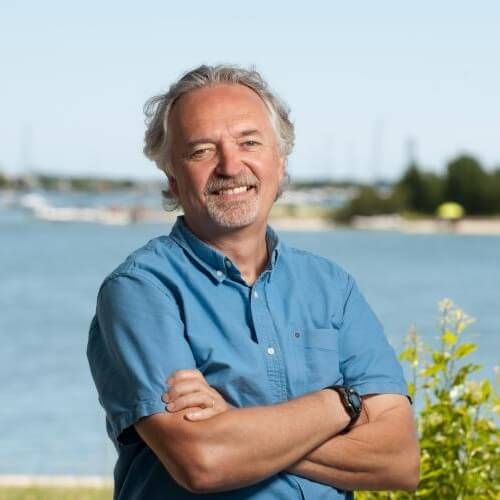
Andy J. Read, Ph.D.
Commissioner

Andy J. Read, Ph.D.
Commissioner
Duke University Marine Laboratory
Beaufort, North Carolina
Dr. Andy Read currently serves as Commissioner of the Marine Mammal Commission, having been appointed by President Biden on December 23, 2022. He is also the Stephen A. Toth Distinguished Professor of Marine Biology at the Nicholas School of the Environment at Duke University, and currently serves as the Director of the Duke University Marine Laboratory in Beaufort, North Carolina. He was born in Southampton, England and educated in Canada. Read received his Ph.D. from the University of Guelph in 1990 for research on the biology and conservation of harbour porpoises. Read conducted post-doctoral research at the Woods Hole Oceanographic Institution from 1990 to 1995 and then moved to the Duke University Marine Laboratory, where he remains today. He has conducted field research on marine mammals in North and South America, Europe, and the Antarctic, with a focus on conservation biology.
Read is active in the conservation of marine mammals at the national and international levels. He is a member of the Cetacean Specialist Group of the International Union for the Conservation of Nature, the International Committee for the Recovery of the Vaquita, and several federal marine mammal Take Reduction Teams. Read served as a member of the U.S. delegation to the Scientific Committee of the International Whaling Commission and is a past President of the Society for Marine Mammalogy. He has written more than 200 scientific papers and supervised 25 Ph.D. graduates at Duke University. Read lives in Gloucester, North Carolina with his wife.
Committee of Scientific Advisors on Marine Mammals
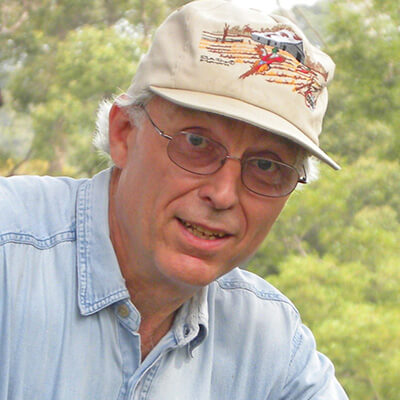
Randall R. Reeves, Ph.D.
CSA Chairman

Randall R. Reeves, Ph.D.
CSA Chairman
Okapi Wildlife Associates
Hudson, Quebec, Canada
Randall Reeves was born, raised, and educated in Nebraska. He relocated to the East Coast in 1970, earned his M.A. in public policy from Princeton in 1973, and soon after that became hooked on whales. As a research associate at the Smithsonian Institution and later the Arctic Biological Station near Montreal, he carried out numerous contract studies, including several for the Marine Mammal Commission in the 1970s and 1980s. Dr. Reeves’s doctoral dissertation at McGill University (1992) was on the history and management of narwhal hunting. During the 1980s and 1990s, he was involved in field research and conservation initiatives on whales in Alaska, the Canadian Arctic, and Greenland; on right whales and other cetaceans in the North Atlantic; and on river dolphins and coastal cetaceans in Asia and South America. He is also an expert on the history of whaling. As Chairman of the International Union for Conservation of Nature Species Survival Commission’s Cetacean Specialist Group since 1996, Dr. Reeves has been responsible for preparing and evaluating Red List assessments; drafting conservation action plans; and advising government agencies, intergovernmental bodies, and non-governmental organizations. He has published numerous articles in scientific journals and co-authored or co-edited books on marine mammal conservation and science. He is a longtime member of the International Whaling Commission’s Scientific Committee and Mexico’s international vaquita recovery committee and recently served on the President of Mexico’s special advisory commission to save the vaquita. Dr. Reeves joined the Committee of Scientific Advisors in 2006.

Jason Baker, Ph.D.

Jason Baker, Ph.D.
NOAA Pacific Islands Fisheries Science Center
Honolulu, Hawaii
Jason Baker is a marine biologist at the National Oceanic and Atmospheric Administration (NOAA) Pacific Islands Fisheries Science Center (PIFSC). He earned a B.A. in Russian and Eastern European international studies and an M.S. in wildlife sciences from the University of Washington, followed by a Ph.D. in zoology from the University of Aberdeen, Scotland. From 1984 to 1998, he worked at the NOAA National Marine Mammal Laboratory, primarily researching northern fur seals on the Pribilof Islands, AK, where he regularly collaborated with members of the Aleut communities of St. Paul and St. George. He has conducted field research in Alaska, the continental U.S. West Coast, the former Soviet Far East, Hawaiʻi, American Samoa, Scotland, Finland, and West Africa. In 1998, he accepted a position leading NOAA’s Hawaiian monk seal population assessment research. In the mid-2000s, he led the establishment of the PIFSC cetacean and marine turtle stock assessment programs. Dr. Baker is the author or co-author of more than 60 peer-reviewed publications on a diverse range of topics; these include population dynamics, population and foraging ecology, evidence-based conservation, climate change, behavior, physiology, and health. Since 2007, he has focused on applied conservation biology and is keenly interested in the connectivity among marine mammal population biology, ecology, and environmental change. His current research centers on designing rigorous, evidence-based interventions to conserve rare pinniped species, especially in the context of climate change. Dr. Baker joined the Marine Mammal Commission Committee of Scientific Advisors on Marine Mammals in 2013.
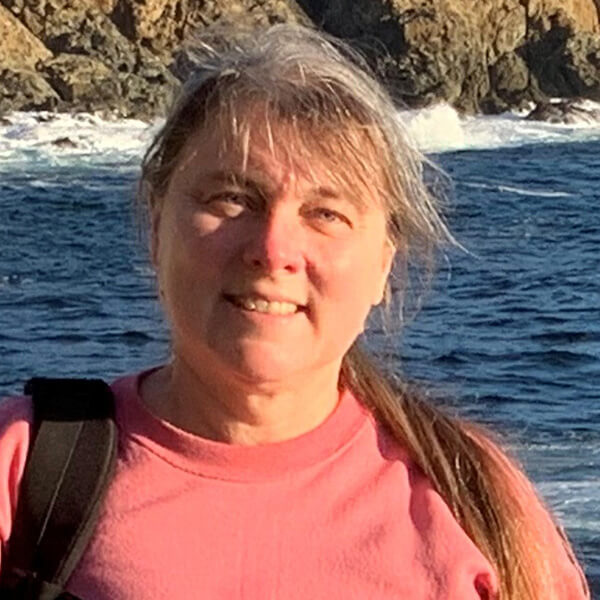
Karin Forney, Ph.D.

Karin Forney, Ph.D.
NOAA, Southwest Fisheries Science Center
Moss Landing, California
Dr. Karin Forney is a Research Biologist with the Marine Mammal and Turtle Division at NOAA’s Southwest Fisheries Science Center and a Research Affiliate at San Jose State University’s Moss Landing Marine Laboratories. Since 1987, Karin has conducted research on the abundance, distribution, ecology, fishery bycatch, and status of over 20 species of cetaceans (whales, dolphins and porpoises) and pinnipeds (seals and sea lions) in the eastern and central North Pacific Ocean, with special emphasis on harbor porpoise, false killer whales, and other small cetaceans. She has collaborated on studies of endangered leatherback turtles off California and is currently working with a multi-stakeholder group to understand and reduce whale entanglements in pot and trap fisheries along the U.S. West Coast. She received a Master’s degree in Biology from U.C. San Diego and a Ph.D. in Biological Oceanography from Scripps Institution of Oceanography. Research interests include: 1) ocean variability and its effect on marine mammals and other marine vertebrates, 2) habitat-based predictive models of cetacean distribution and abundance, 3) assessment and mitigation of human-caused mortality and injury of protected marine species, and 4) the development of improved methodology for estimating marine animal abundance and evaluating population trends. Results of her studies have been published in scientific journals and technical reports, and presented at national and international scientific conferences. Additional responsibilities include writing or co-authoring annual Stock Assessment Reports for Pacific Marine Mammal Stocks under NMFS jurisdiction, and conducting field research in small aircraft and aboard oceanographic research vessels. Dr. Forney joined the Marine Mammal Commission Committee of Scientific Advisors on Marine Mammals in 2023.
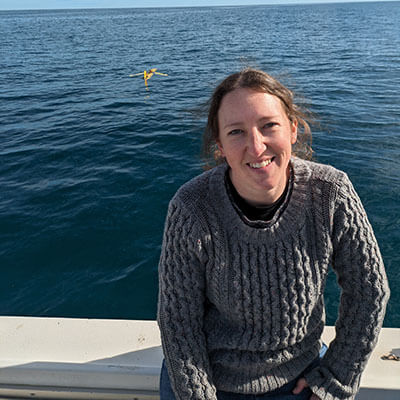
Erin Meyer-Gutbrod, Ph.D.

Erin Meyer-Gutbrod, Ph.D.
University of South Carolina
Columbia, South Carolina
Erin Meyer-Gutbrod is an Assistant Professor in the School of the Earth, Ocean, and Environment at the University of South Carolina. She earned a BS in physics at the University of Notre Dame in 2008 and a PhD in oceanography at Cornell University in 2016. From 2017-2020, Dr. Meyer-Gutbrod served as a postdoctoral scholar at the University of California, Santa Barbara researching fish communities beneath oil and gas platforms and the potential impact of platform decommissioning. She is a quantitative marine ecologist who uses statistical, demographic, and spatial models to understand how marine species respond to environmental and anthropogenic processes. Much of Dr. Meyer-Gutbrod’s research focuses on the effects of climate change on the distribution, demography, and conservation of critically endangered North Atlantic right whales. Among leadership and service positions, Dr. Meyer-Gutbrod is a member of the National Oceanic and Atmospheric Administration / U.S. Fish and Wildlife Service’s Atlantic Scientific Review Group, the North Atlantic Right Whale Consortium board, and the Atlantic Large Whale Take Reduction Team. Dr. Meyer-Gutbrod joined the Marine Mammal Commission Committee of Scientific Advisors in 2024. More information on Dr. Meyer-Gutbrod and her research can be found at https://meyer-gutbrod.weebly.com/
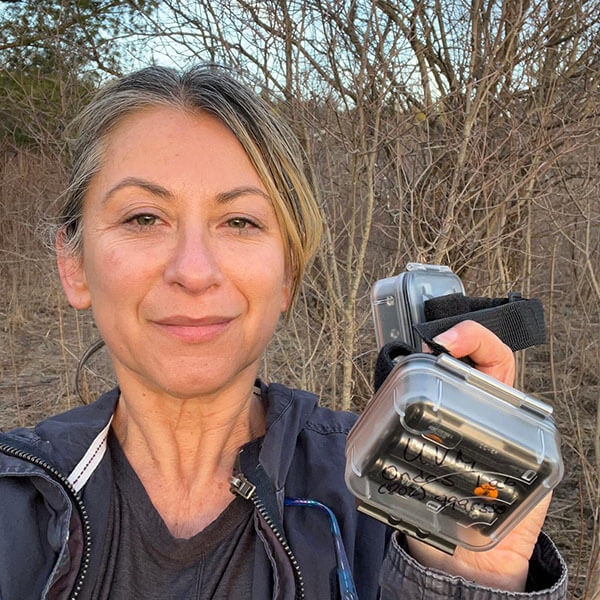
Laura May-Collado, Ph.D.

Laura May-Collado, Ph.D.
University of Vermont
Burlington, VT
Dr. May-Collado is an Assistant Professor in the Department of Biology at the University of Vermont. She holds a BS and M.Sc. in Biology from the University of Costa Rica and a PhD in Biology from Florida International University. Dr. May-Collado conducted postdoctoral research at the University of Puerto Rico, Río Piedras, focusing on soundscapes, and at the University of Vermont, where she studied the phylogenetics of various animal groups. As a marine mammal evolutionary biologist, Dr. May-Collado examines the phylogenetic and ecological factors that shape the acoustic repertoires of aquatic mammals. Her research integrates phylogenomics, field observations, autonomous underwater recording systems, unmanned aerial vehicles, and machine learning to explore the diversity of communicative signals in aquatic mammals within their natural environments. In 2025, Dr. May-Collado joined the Marine Mammal Commission’s Committee of Scientific Advisors. More information about her research is available at https://www.uvm.edu/cas/biology/profile/laura-j-may-collado.
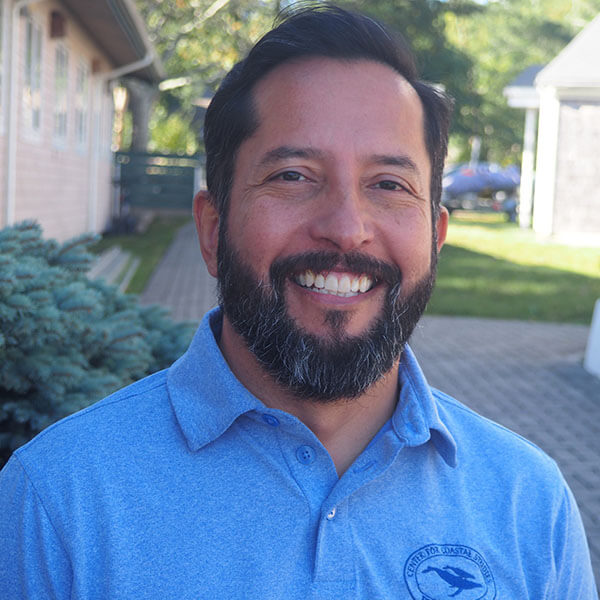
Daniel M. Palacios, Ph.D.

Daniel M. Palacios, Ph.D.
Center for Coastal Studies
Provincetown, MA
Dr. Daniel M. Palacios is the Director of the Right Whale Ecology Program at the Center for Coastal Studies in Provincetown, Massachusetts, and specializes in marine mammal ecology with a focus on large whale species. He received a B.Sc. in Marine Biology from the University of Bogotá Jorge Tadeo Lozano in 1994 and completed his Ph.D. in Oceanography at Oregon State University in 2003. With over 35 years of experience, his research has extensively explored the environmental drivers affecting marine mammal populations in diverse ecosystems, including the Amazon River, the Caribbean, the Gulf of Mexico, the eastern tropical Pacific, the eastern North Pacific, Alaska, Hawaii, and most recently, the western North Atlantic. Throughout his career, Dr. Palacios has held positions in non-profit, government, and academic sectors. He has authored or co-authored more than 150 peer-reviewed articles, book chapters, and technical reports, with notable contributions in species-habitat relationships and satellite tagging of marine top predators. Dr. Palacios has served or currently serves as a member of several advisory groups, including NOAA’s Pacific Scientific Review Group, the Aquatic Mammals Working Group of the Scientific Council of the Convention on Migratory Species, and the International Union for Conservation of Nature Species Survival Commission’s Cetacean Specialist Group. He is also a member of the Scientific Committee of the International Whaling Commission. His editorial roles have included Editor-in-Chief of the Latin American Journal of Aquatic Mammals, Associate Editor for Marine Mammal Science, and Review Editor for Frontiers in Marine Science. Dr. Palacios joined the Marine Mammal Commission’s Committee of Scientific Advisors on Marine Mammals in 2022. More information on Dr. Palacios and his research can be found at https://linktr.ee/danielequs
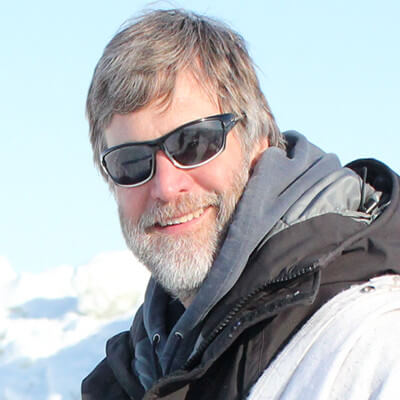
Robert Suydam, Ph.D.

Robert Suydam, Ph.D.
North Slope Borough
Barrow, Alaska
Robert Suydam earned a B.S. in environmental biology from California State University-Fresno in 1986 and an M.S. in biology from the University of Alaska Fairbanks in 1995. He has lived in Barrow, Alaska, and worked as a wildlife biologist for the North Slope Borough since 1990. His research interests have focused on working with Northern Alaska communities to monitor population trends and document natural history traits of bowhead and beluga whales, eiders, geese, and other Arctic species. Additionally, he works with subsistence hunters and oil and gas industry to identify, prioritize, and fill baseline study needs and data gaps. He also serves on the International Whaling Commission’s Scientific Committee, currently as their vice-chair. Dr. Suydam has authored or co-authored more than 75 peer-reviewed scientific publications and numerous scientific reports. In 2007, he received his Ph.D. from the University of Washington’s School of Aquatic and Fisheries Sciences. His doctoral work focused on the population dynamics and life history traits of beluga whales from the eastern Chukchi Sea. Dr. Suydam joined the Marine Mammal Commission’s Committee of Scientific Advisors on Marine Mammals in 2008.

Aaron M. Thode, Ph.D.

Aaron M. Thode, Ph.D.
Marine Physical Laboratory, Scripps Institution of Oceanography, University of California
San Diego, California
Thode received his Bachelor of Science degree in physics and master’s degree in electrical engineering (specializing in antenna and radio propagation) concurrently in 1993 from Stanford University. He received his Ph.D. in Oceanography from Scripps in 1999. He was a postdoctoral scholar in ocean engineering at the Massachusetts Institute of Technology from 1999-2001, before rejoining Scripps in 2002 as a Research Scientist.
In 2005, he received the A. B. Wood Medal from the UK’s Institute of Acoustics, “for distinguished contributions in the application of acoustics.” In 2008 he was elected a Fellow in the Acoustical Society of America for “contributions in signal processing to marine mammal acoustics”, and in 2011 he was awarded the Medwin Prize in Acoustical Oceanography by the same society, recognizing “a person for the effective use of sound in the discovery and understanding of physical and biological parameters and processes in the sea”. Thode’s research ranges from the physics of underwater sound propagation to studies of the acoustic behavior of marine mammals off Alaska, California, and Mexico.

Randall Wells, Ph.D.

Randall Wells, Ph.D.
Chicago Zoological Society, Sarasota Dolphin Research Program
Sarasota, Florida
Randall Wells joined the Marine Mammal Commission’s Committee of Scientific Advisors in 2015. He is a senior conservation scientist with the Chicago Zoological Society, where he directs the Sarasota Dolphin Research Program. Dr. Wells obtained his Ph.D. from the University of California, Santa Cruz, and received a post-doctoral fellowship from Woods Hole Oceanographic Institution. Dr. Wells’ current research program examines the behavior, social structure, life history, ecology, health, and population biology of resident bottlenose dolphins studied since 1970 along the Central West Coast of Florida, with studies focusing on anthropogenic impacts. In addition, Dr. Wells has been involved in research with vaquita; spinner and pantropical spotted dolphins; franciscanas; blue, gray, bowhead, and humpback whales; and manatees. Dr. Wells has engaged in interventions and the reintroduction and post-release monitoring of captive, rescued, and rehabilitated bottlenose, Risso’s, Guiana, and rough-toothed dolphins, as well as short-finned pilot whales. Dr. Wells was President of the Society for Marine Mammalogy from 2010 to 2012. Dr. Wells also serves on the National Oceanic and Atmospheric Administration (NOAA)/U.S. Fish and Wildlife Service’s Atlantic Scientific Review Group, and he is past-chair of the NOAA Working Group on Marine Mammal Unusual Mortality Events. Dr. Wells serves on the International Union for Conservation of Nature’s Cetacean Specialist Group.
Special Advisors to the Commission
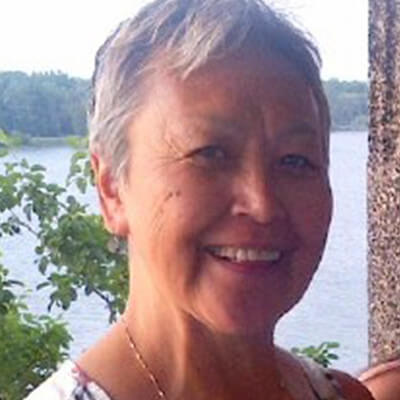
Vera Kingeekuk Metcalf
Special Advisor on Native Affairs

Vera Kingeekuk Metcalf
Special Advisor on Native Affairs
Eskimo Walrus Commission
Nome, Alaska
Vera Metcalf was born and raised in Savoonga (Sivungaq) on St. Lawrence Island, Alaska. Since 2002, she has been the Director of the Eskimo Walrus Commission (EWC) at Kawerak, Inc., which represents 19 coastal Alaskan communities in areas such as promoting community involvement in research, documenting local traditional ecological knowledge, and co-managing the Pacific walrus population. Ms. Metcalf represents the EWC in various forums, including the Indigenous People’s Council on Marine Mammals, the Arctic Marine Mammal Coalition, and the Arctic Waterways Safety Committee. She is a Special Advisor on Native Affairs on the Marine Mammal Commission, an advisory panel member of the North Pacific Research Board, a steering committee member for the Alaska Center for Climate Assessment and Policy, a committee member on the Marine Advisory Program/University of Alaska Fairbanks, and a member of the Inuit Circumpolar Council Executive Committee and Alaska board. Ms. Metcalf is also a Bering Strait Commissioner for the U.S. Department of State, facilitating travel between Chukotka, Russia, and the Bering Straits region of Alaska. She is a strong advocate for the subsistence lifestyles of Alaska Native peoples, and is passionate about strengthening Alaska Native languages and cultures.
Commission Staff

Peter O. Thomas, Ph.D.
Executive Director

Peter O. Thomas, Ph.D.
Executive Director
Peter Thomas is the Executive Director of the Marine Mammal Commission. He earned his Ph.D. in Animal Behavior from the University of California, Davis, conducting research on southern right whales at Peninsula Valdés, Argentina under a Fulbright Fellowship. In the early 1980s, he was part of a team studying bowhead whale behavior in response to seismic testing in the Canadian Beaufort Sea. As Assistant to the Director of the Minnesota Zoological Gardens (1987-1991) Dr. Thomas led a review of the zoo’s marine mammal program. He joined the U.S. State Department in 1991 as a AAAS Science and Diplomacy Fellow. Over his career at State (1991-2001) he managed U.S. policy and international negotiations on the Convention on Biological Diversity and the Convention on International Trade in Endangered Species of Wild Fauna and Flora (CITES). He was instrumental in the creation of the International Coral Reef Initiative (ICRI) and the U.S. Coral Reef Task Force and was the first ICRI Global Chair (1994-1996). From 1999-2001 Dr. Thomas served as the U.S. Advisor for Scientific and Technological Affairs to the Organization for Economic Cooperation and Development in Paris. He joined the U.S. Fish and Wildlife Service in 2001 as Chief of the Division of Management Authority, the office that oversees permitting and policy for U.S. wildlife imports and exports under the CITES Convention.
Dr. Thomas joined the Marine Mammal Commission in 2008 as International and Policy Program Director, overseeing reviews of proposed actions under the Marine Mammal Protection Act (MMPA), Endangered Species Act (ESA), National Environmental Policy Act (NEPA), and other statutes and treaties and domestic policy related to the Arctic, climate change, sound, energy development, and shipping. He led the Commission’s international work with a focus on acute marine mammal conservation issues such as the endangered vaquita porpoise, conservation of freshwater cetaceans, and the response of marine mammals to the effects of climate change. He is lead author of the 2015 assessment of the Status of the World’s Baleen Whales.

Dee Allen
Scientific Program Officer

Dee Allen
Scientific Program Officer
Dee Allen joined the Marine Mammal Commission’s team in 2014 as the Research Program Officer and later transitioned to the Scientific Program Officer. She earned her B.S. (Towson State University) and M.S. (The George Washington University) degrees in biological sciences. Her master’s thesis research on the use of mandibular morphometric analyses for distinguishing species and sex of beaked whales earned her the John G. Shedd Aquarium Award from the Society for Marine Mammalogy and the Sylvia L. Bunting Prize from the George Washington University. Ms. Allen has volunteered with the Sarasota Dolphin Research Program since 1991, assisting with health assessments, telemetry, photo identification, and behavioral observations of bottlenose dolphins. From 1996 to 2007, she worked with the Smithsonian Institution’s Marine Mammal Program at the National Museum of Natural History (NMNH) and maintains active collaborations with this program as a Research Associate. At NMNH, she managed the Cetacean Distributional Database, participated in necropsies and anatomical studies of cetaceans, led the collaborative development of an online reference for identifying beaked whale specimens, and participated in numerous student mentorship opportunities and outreach events. Ms. Allen worked with the National Marine Mammal Laboratory at the National Oceanic and Atmospheric Administration’s (NOAA’s) Alaska Fisheries Science Center (AFSC) for seven years. At NOAA’s AFSC, she coordinated the annual development of the Alaska Marine Mammal Stock Assessment Reports (SARs), served as Fisheries Liaison to the Alaska Scientific Review Group, managed the Marine Mammal Protection Act (MMPA) and the Convention on International Trade in Endangered Species of Wild Fauna and Flora (CITES) import and export permits, and coordinated reviews of permit applications at the request of the Fisheries Permit Division. She also compiled human-caused mortality and injury data on Alaskan marine mammals and assessed the severity of injuries under the agency’s Serious Injury Policy for use in the SARs and List of Fisheries. Ms. Allen has participated as a member of marine mammal field research teams with the Woods Hole Oceanographic Institution, NOAA’s Northeast and Alaska Fisheries Science Centers, and Duke University. As a member of the Commission’s Scientific Program, Ms. Allen administers the Commission’s research grants program and provides scientific support to the program and the Commission.
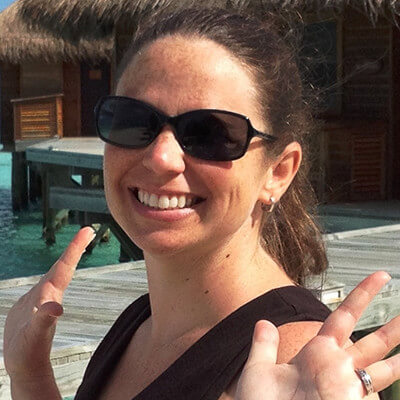
Tiffini J. Brookens
Biologist

Tiffini J. Brookens
Biologist
Tiffini Brookens has been a biologist at the Marine Mammal Commission since 2010. In 2001, she earned a B.S. in biology and marine science, with minors in chemistry and environmental science. In 2006, she earned an M.S. in marine science, with an emphasis in marine mammalogy, from Moss Landing Marine Laboratories at California State University, Monterey Bay. Her master’s thesis focused on trace element concentrations in live-captured and dead-stranded harbor seals throughout central and northern California. She was Monterey County’s stranding network coordinator for a number of years and obtained additional funding to conduct body burden assessments of total mercury in harbor seal pups. In 2007, Ms. Brookens began work as a marine biologist at the Naval Undersea Warfare Center Division, Newport, in Rhode Island. While with the Navy, she drafted and reviewed documentation regarding acoustic and impulsive effects of the Navy’s testing and training activities on marine mammals. Ms. Brookens has continued to provide technical expertise regarding the effects of underwater sound on marine mammals during her tenure at the Commission. She also has served as the Commission’s representative for the Working Group on Marine Mammal Unusual Mortality Events for more than a decade.
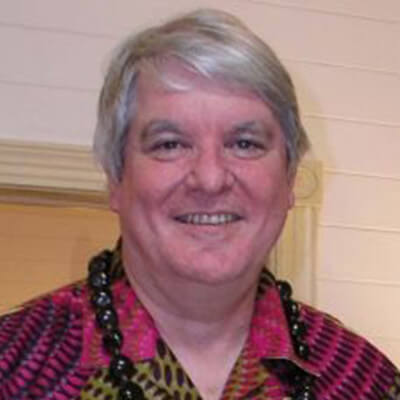
Michael L. Gosliner, Esq.
General Counsel

Michael L. Gosliner, Esq.
General Counsel
Michael Gosliner is the General Counsel of the Marine Mammal Commission, a position he has held since 1987. He holds an undergraduate degree in biology from the University of California at Berkeley and a J.D. from the University of California’s Hastings College of the Law. He was a founding member of the Hastings Environmental Law Association, an affiliation that led to him securing an internship with the White House Domestic Policy Staff. Mr. Gosliner served as a staff attorney with the National Oceanic and Atmospheric Administration’s (NOAA’s) Office of General Counsel beginning in 1983, where he specialized in issues related to the Endangered Species Act (ESA) and the Marine Mammal Protection Act (MMPA). While at NOAA, he was the primary author of regulations governing subsistence hunting of fur seals, was a principle author of regulations implementing Section 7 of the ESA, and represented the agency in a formal rulemaking authorizing the incidental taking of marine mammals in commercial fishing operations. As General Counsel, he oversees the legal affairs of the Commission. Among his many positions, he serves as the Commission’s ethics official, tribal liaison, committee management officer, National Environmental Policy Act liaison, and Freedom of Information Act officer. A recognized expert on the MMPA, Mr. Gosliner has lead responsibility for the development of Commission positions regarding interpretation and implementation of the Act. He also serves as the staff lead on a variety of other issues, including the conservation of polar bears and Cook Inlet beluga whales.
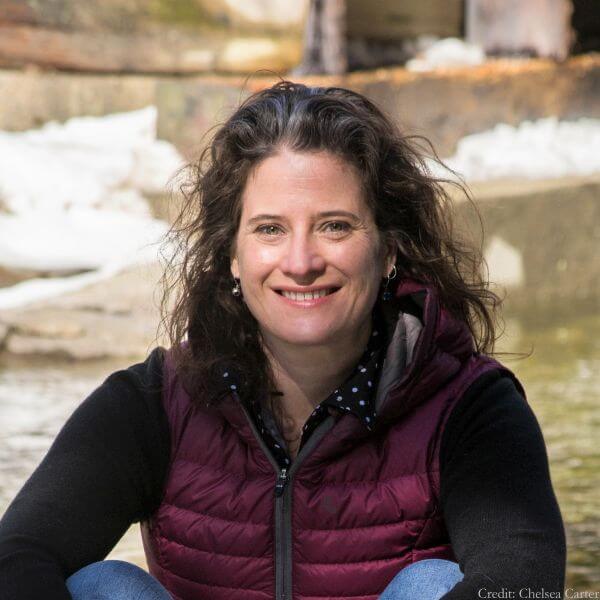
Erin LaBrecque, Ph.D.
Scientific Program Officer

Erin LaBrecque, Ph.D.
Scientific Program Officer
Erin LaBrecque joined the Marine Mammal Commission’s Scientific Program in 2020. She is a marine ecologist with research interests in spatial modeling, marine bioacoustics, and understanding the bio-physical processes that describe marine mammal habitats and influence their distributions. After graduating from the Honor’s Program at the University of Maryland Eastern Shore with a B.S. in biology, she worked as a field biologist on various marine mammal research and conservation projects for US government agencies and nonprofit and academic research groups. From ship-based, multispecies abundance and ecosystem assessment surveys to dedicated small-boat, species-specific field work, Dr. LaBrecque has observed marine mammal populations in several ecosystems including the Eastern Tropical Pacific, U.S. Hawaiian waters, the California Current, Gulf of Mexico, Gulf of Maine, Bay of Fundy, and U.S. Atlantic waters. After several years as a marine mammal field biologist, Dr. LaBrecque attended Duke University and earned a Master of Environmental Management focusing on coastal environmental management, and a Ph.D. in marine science and conservation. Her master’s research with Dr. Andy Read assessed the influence of a dynamic frontal zone on seabird and marine mammal distributions off Cape Hatteras, North Carolina. Her Ph.D. with Dr. Pat Halpin focused on developing cetacean habitat models within the Mid-Atlantic Bight shelf break region to understand fine-scale cetacean habitat and prey variability within this dynamic region which overlaps with human activities. In 2016 and 2017 Dr. LaBrecque was a visiting postdoctoral associate in the Marine Ecology and Acoustic Lab at Florida International University and helped characterize individual and group movements of the deep scattering layer in the Gulf of Mexico from broadband and multifrequency narrowband active acoustics. Since 2017, she has been an independent contractor working in data science, active acoustics, spatial modeling, and has consulted for the Natural Resources Defense Council on the potential effects of US offshore wind development on marine mammals. Beyond marine mammal research, Dr. LaBrecque is a proponent of open-source programming and collaborative research, science communication, and anything having to do with dogs.

Lauri Leach
Permit Biologist

Lauri Leach
Permit Biologist
Lauri joined the Commission as a Permit Biologist in August 2022. She earned a B.S. in biological sciences at the University of Rhode Island and spent several years working as a veterinary technician and wildlife rehabilitator, while volunteering with multiple marine mammal stranding programs. With a growing interest in conservation, Lauri went on to gain experience as a field biologist studying Hawaiian monk seals in the Northwestern Hawaiian Islands, participated in aerial and vessel-based surveys for North Atlantic right whales in Florida and Cape Cod, and assisted with photo-identification of humpback whales, fin whales, and gray seals in the Gulf of Maine. She received her Master’s degree in marine biology at the University of Maine, where she studied predator-prey interactions between seals and diadromous fish in the Penobscot River Estuary. Lauri was the 2021 Knauss Marine Policy Fellow at the Commission, and spent several months supporting the Cetacean and Pinniped Conservation program in NOAA’s Office of Protected Resources before returning to the Commission full-time.

Phyllis P. Malloy

Phyllis P. Malloy
Phyllis Malloy is a native of Fairmont, North Carolina and an alumnus of the University of North Carolina at Greensboro where she earned a B.S. degree in Recreation and Leisure Studies with a concentration in Therapeutic Recreation. Ms. Malloy brings 20 years of administrative experience and training with the U.S. Air Force as an Administrative Specialist/Information Manager. In addition to her honorable Air Force career, she holds an A. S. degree in Information Management from the Community College of the Air Force and an A.S. degree in Office Systems Technology from Central Carolina Technical College. Ms. Malloy brings a strong love for animals of both land and sea. She joined the Commission staff in 2015.

Brady O'Donnell
Communications and Legislative Affairs Officer

Brady O'Donnell
Communications and Legislative Affairs Officer
Brady joined the Commission as the Communications and Legislative Affairs Officer in April 2019. He previously served the Commission as a 2018 Knauss Marine Policy Fellow through the NOAA Sea Grant program. His duties include legislative affairs, external communications, and media management. He received his Master’s degree from the University of California, Davis where his research focused on the carbon sequestration of seagrass meadows in Northeastern Pacific estuaries. While in graduate school, Brady pursued science-policy opportunities including an internship at the NOAA West Coast Regional Office, research with Point Blue Conservation Science, and social media development for the Cordell Bank National Marine Sanctuary. He has completed and led many science communication workshops and is always eager to learn more. Brady completed a B.S. at Eckerd College with a double major in Marine Science and Environmental Studies, minoring in Political Science. While at Eckerd College, his undergraduate research focused on the linkages between human impacts to the environment in marine sediments, including work on the Deepwater Horizon Oil Spill in the Gulf of Mexico as well as sediment pollution to coral habitats in St. John, US Virgin Islands. As the Communications Officer, Brady will continue to further the Commission’s mission by strengthening the agency’s external communications, legislative affairs, and media management.
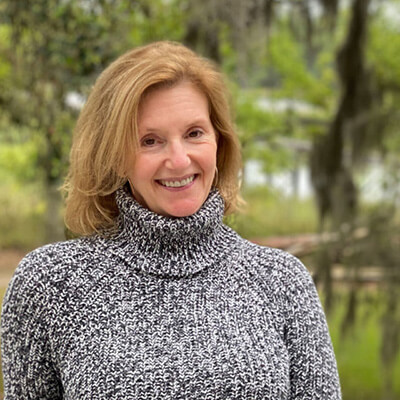
Lori Schwacke, Ph.D.
Scientific Program Director

Lori Schwacke, Ph.D.
Scientific Program Director
Lori Schwacke is the Scientific Program Director for the Marine Mammal Commission. Her research career has focused on investigating the connections among marine wildlife health, human health, and the health of our oceans. Dr. Schwacke served NOAA for 16 years and led interdisciplinary research for the Center of Excellence in Oceans and Human Health at Hollings Marine Laboratory (2008-2011), focusing on marine mammals as sentinels of ocean health. She investigated the effects of persistent organochlorine pollutants (POPs) on bottlenose dolphins along the coast of Georgia, where her team documented some of the highest POP concentrations ever reported for marine wildlife. She also investigated exposure pathways and effects of harmful algal toxins on dolphins following a series of Unusual Mortality Events along the coast of the Florida Panhandle. In 2010, she was asked to lead the injury assessment for bottlenose dolphins following the catastrophic Deepwater Horizon oil spill. Her team’s research produced the first direct findings of oil-associated health impacts in a cetacean. She also organized and led a team of statistical experts to develop a modeling framework for quantifying the long-term impacts of the spill for multiple cetacean populations in the Gulf of Mexico. After leaving NOAA, she served as Chief Scientist for Conservation Medicine at the National Marine Mammal Foundation (2017-2022). At NMMF, her research focused on methods for predicting population vital rates (survival and reproduction) based on health measures, and developing new tools to collect health data for cetaceans, including large whales, via remote sampling methods. She also continued her research on the long-term effects of oil spills as the Director of the Consortium for Advanced Research on Marine Mammal Health (CARMMHA), a consortium of over 30 researchers from 10 organizations supported through the Gulf of Mexico Research Initiative. Dr. Schwacke holds a PhD in Biostatistics, Epidemiology, and Systems Science from the Medical University of South Carolina, and has over 120 peer-reviewed scientific publications.
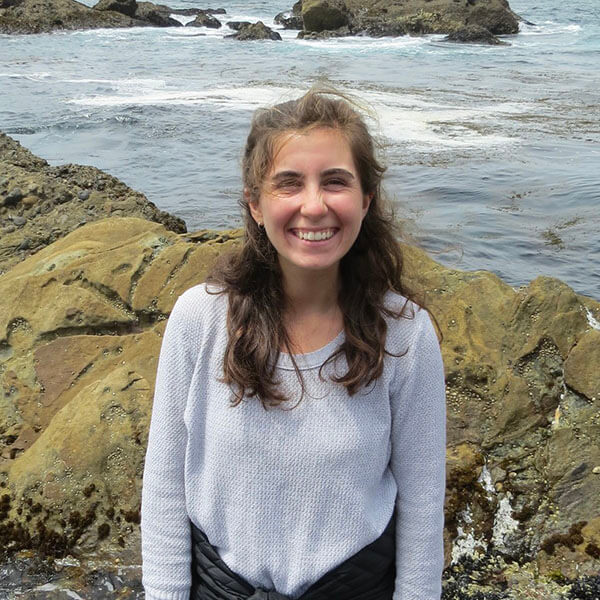
Jacquelyn Shaff
Ecologist/Alaska Native Liaison

Jacquelyn Shaff
Ecologist/Alaska Native Liaison
Jackie joined the Marine Mammal Commission as an ecologist and Alaska Native liaison in 2024, after serving as the 2023 Knauss Marine Policy Fellow. She supports the Commission’s Scientific Program by assessing and developing scientific and policy recommendations on the conservation and protection of marine mammals and their ecosystems, focused on Alaska, the Arctic, and the Pacific Northwest. In her role, she also acts as the Commission’s Tribal Liaison, continuing to support marine mammal co-management in Alaska. Jackie earned a B.S. in Wildlife, Fish, and Conservation Biology with a minor in Anthropology from the University of California, Davis, and a Master’s in Marine Affairs from the University of Washington, where she explored the role of fishers’ local ecological knowledge to understand long-term trends of marine top predators. Prior to joining the Commission, Jackie worked for non-government organizations on the West Coast and in Hawaiʻi, integrating the perspectives of marine resource users and Indigenous communities into marine species recovery efforts. Her experience includes studying the movement ecology of odontocetes to reduce fisheries interactions in Hawaiian waters, participating in vessel-based surveys in Washington and Hawai’i to collect marine mammal photo-IDs, and working as a marine conservation educator while assisting marine mammal stranding networks in California.
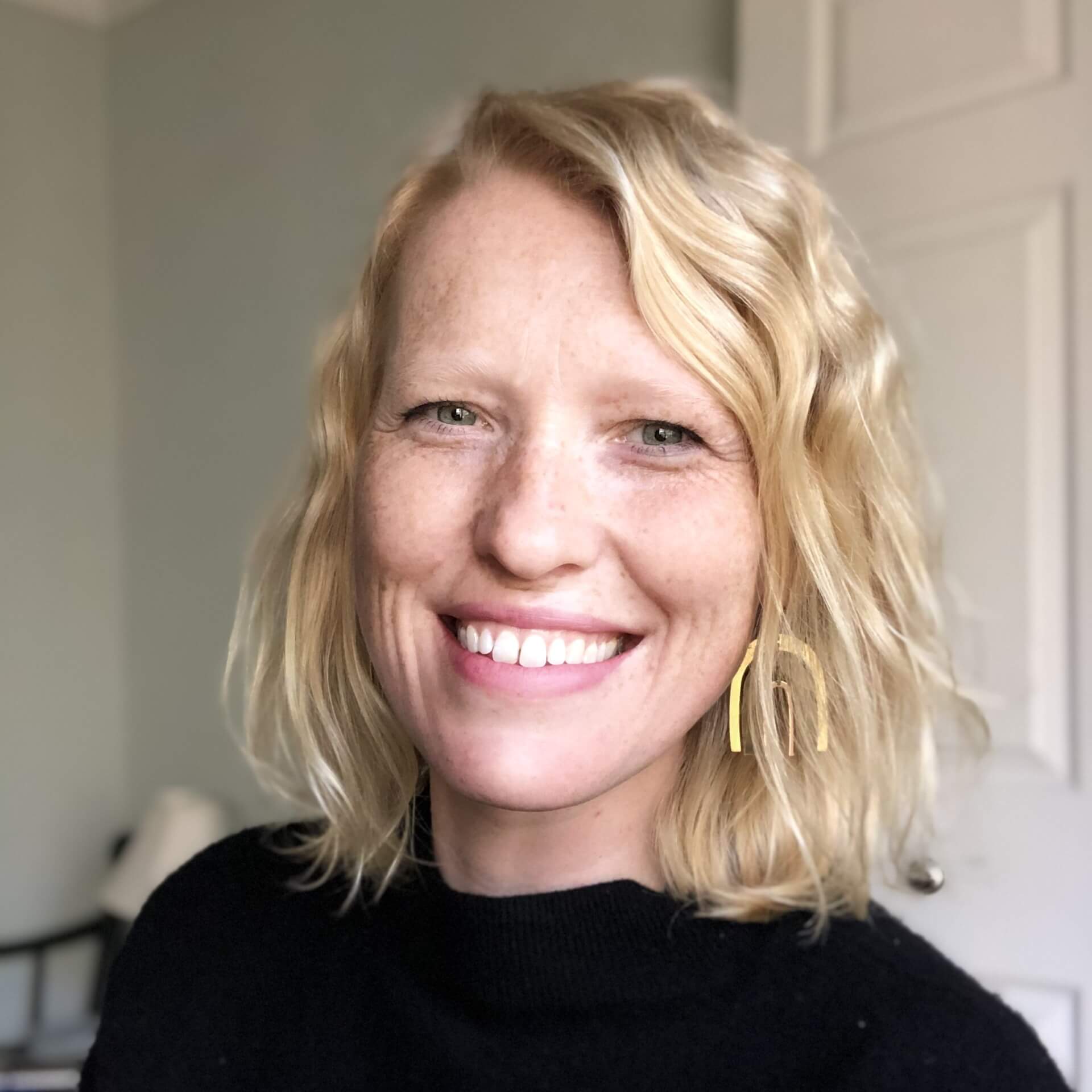
Robin Fail, Ph.D.
2025 Knauss Fellow

Robin Fail, Ph.D.
2025 Knauss Fellow
Robin Fail is the 2025 Knauss Marine Policy Fellow with the Marine Mammal Commission. Robin holds a B.A. in Anthropology from the University of North Carolina at Chapel Hill and a Master’s in Public Policy from Duke University. Robin completed her Ph.D. in Marine Science and Conservation at Duke University in January 2025. As a marine social scientist, her research is guided by an interest in how social systems and marine ecosystems interact, the governance structures used to moderate those interactions, and the processes for integrating various values, knowledge systems, and priorities into policymaking. She is interested in how human-environment relations are conceptualized and managed in the face of competing values. Her dissertation research focused on the role of discourse and values in constituting the politics and policies related to aquaculture. Robin is excited to expand the scope of her oceans governance work with the Commission beginning in February 2025.
